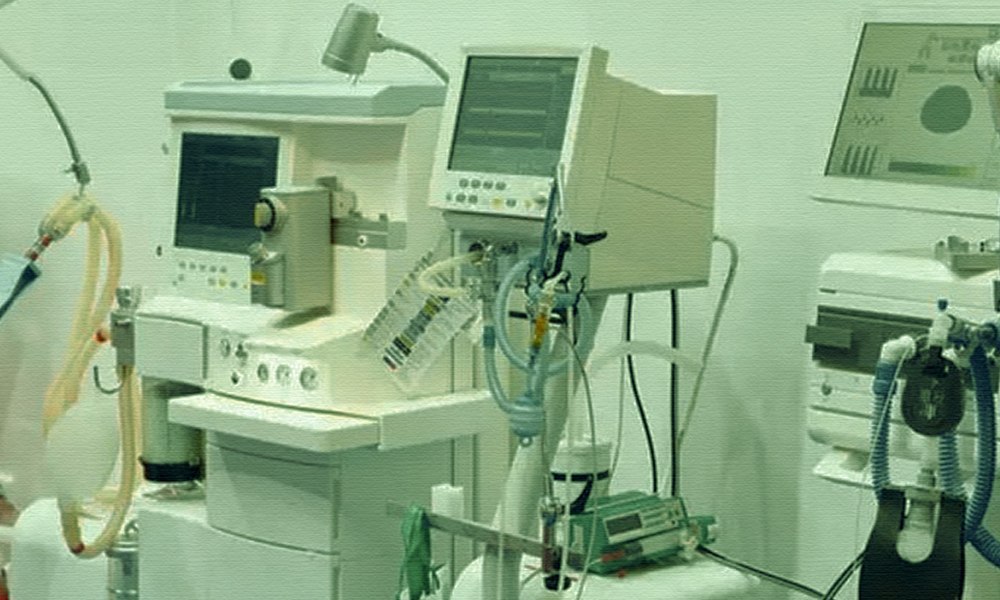
India
AgVa Manipulated PM Cares Ventilator Software To Hide Poor Performance: Former Company Employees Allege Foul Play
 |
|The company has dismissed the allegations said that the said ventilators were purchased by donors who distributed to certain hospitals and hired some third party for initial installations.
Two employees of the medical startup AgVa Healthcare have revealed that the company manipulated the software running its low-cost ventilators to make the devices show they were pumping more oxygen into patients' lungs than they actually were.
These revelations were brought to the forefront after doctors at Mumbai's prestigious JJ Hospital observed variance between the actual performance of AgVa ventilators and the performance registered on the device display. The AgVa ventilators were evaluated after JJ Hospital received 39 AgVa devices as a charitable donation. St. George Hospital, which is attached to JJ Hospital and is a dedicated COVID hospital, had received 42 AgVa ventilators.
A report by the JJ Hospital and written by a panel of five experienced doctors was acquired by the HuffPost India. The report confirmed that Fraction of Inspired Oxygen or FiO2 which refers to the percentage of oxygen in the air pumped into a patient's lung showed a discrepancy.
"Maximum level of displayed FiO2 did not indicate actual delivered FiO2 as patient showed signs of desaturation up to 86% on multipara monitor," the report read.
A report by the Ram Manohar Lohia Hospital in Delhi also flagged similar shortcomings in the said ventilators. The AgVa ventilators evaluated were prone to failure, those worked, struggled to maintain critical parameters, the ventilators struggled to deliver high FiO2 percentages, and could not cater to the needs of critically ill patients in ICUs.
One AgVa ventilator, the JJ Hospital report noted, failed within five minutes of being plugged into a testing machine. Patients connected to the ventilators, the report said, "were getting restless, tachypneic, and were sweating."
Earlier doctors from across the state had raised concerns regarding the quality and performance of AgVa's ventilators. Several hospitals had rejected the use of these ventilators citing that that AgVa's ventilators were not substitutes for high-end, ICU-grade ventilators and should only be used in cases where a backup ventilator is available.
AgVa Healthcare has rejected the claims by its former employees that the company manipulated its software to exaggerate the performance of its devices. "This is a completely mala fide and false comment. FiO2 can easily be checked on any ventilator by connecting an oxygen analyzer to 1% accuracy. Any AgVa ventilator can be tested at any point in time by anyone," AgVa founder Diwakar Vaish said.
The ventilators at JJ Hospital, Vaish said, were not installed by AgVa engineers and were a different, older, model from the ventilators. "The ventilators were purchased by donors and distributed to these hospitals and initial installation is done by some third party without informing us," Vaish said. "As our ventilator requires a proprietary breathing circuit and training, the doctors who used it initially did not operate it properly and this resulted in improper ventilation."
AgVa is now providing its newest models to JJ Hospital, Vaish said, which were the same models being sold to the Indian government. The ventilators at JJ Hospital, Vaish said, were not installed by AgVa engineers and were a different, older, model from the ventilators.
"The ventilators were purchased by donors and distributed to these hospitals and initial installation is done by some third party without informing us," Vaish said. "As our ventilator requires a proprietary breathing circuit and training, the doctors who used it initially did not operate it properly and this resulted in improper ventilation."
AgVa is now providing its newest models to JJ Hospital, Vaish said, which were the same models being sold to the Indian government. Both former employees also said that AgVa employees were often sent out to perform tasks that they were not formally trained for, such as ventilator installation and troubleshooting, a charge AgVa refutes.
A senior doctor who was part of the health ministry's first clinical evaluation trial of AgVa's COVID ventilators in May this year told HuffPost India that the committee called for more validation as they felt the device had been rushed to market.
"We told them, don't play with the lives of patients. Modify the machine, perfect the machine, don't hurry it. That was our reason for calling for more validation," the doctor said. "We should not compromise on ventilator quality. My Indian brothers and sisters should not be harmed by a product we have cleared. Which is why we said the ventilator needs more validation."
Four different doctors who had used AgVa's ventilators noted that each time they flagged concerns with the device, Vaish claimed that the problem lay with doctors who did not know how to use his ventilator.
Ranjit Mankeshkar, the Dean of JJ Hospital however disputed Vaish's account. Mankeshkar said the hospital would take a decision on Agfa's latest batch of ventilators only after testing and evaluating the performance of the devices.
Also Read: Mumbai Hospitals Return 81 Made In India Ventilators Over Inefficacy To Treat COVID-19 Patients